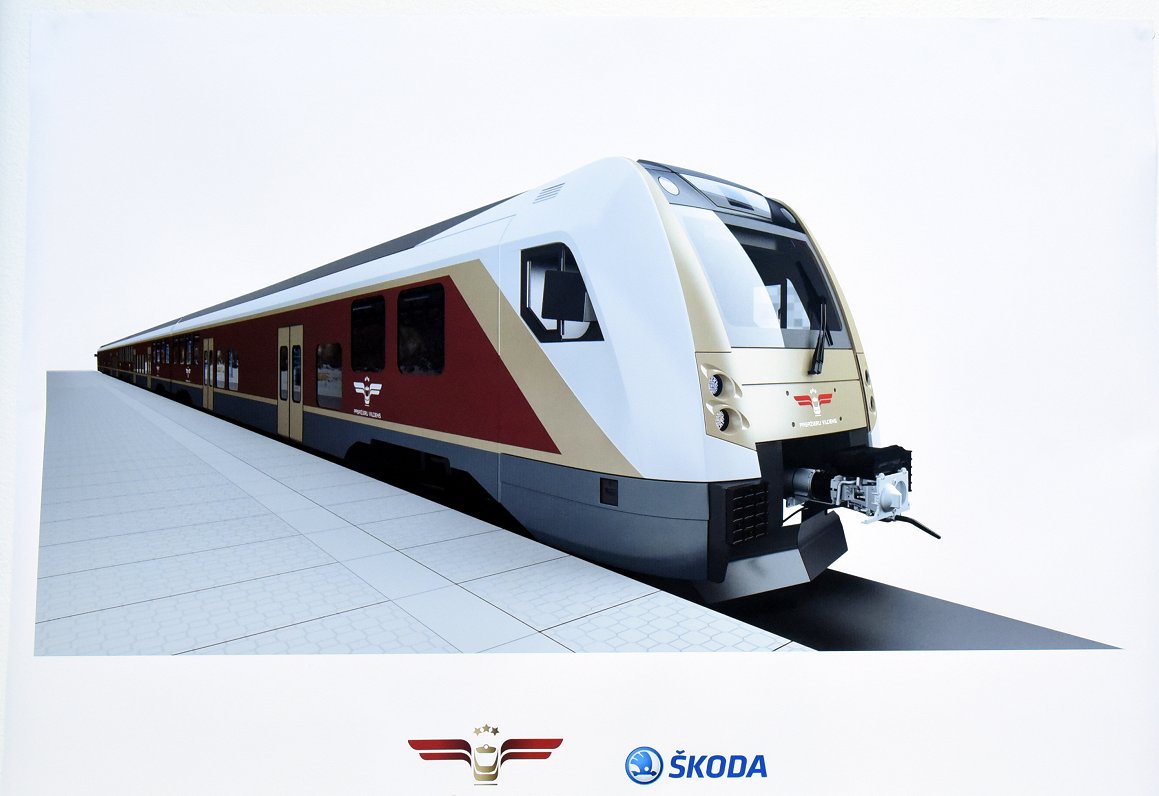Linkaits said that this is likely not the final decision in regards to the mentioned procurement, as it will most likely be appealed.
The minister also pointed to Finance Minister Jānis Reirs' (New Unity) comments that the reputational problems of the winning bid could threaten the availability of EU funds for the procurement.
Linkaits said that PV has become a hostage in a ''clash of various interests''.
At the same time, he added that none of the decisions made yet ''are helping to move Latvia forward for the purchase of new electric trains''. He also said that there are no clear solutions on how this procurement could move forward at the moment.
The minister also refrained from answering whether all of the mentioned concerns will lead to the winning company to ultimately be disallowed from the procurement. He also did not comment whether the project could move forward without EU co-financing.
''I think we can return to looking into the liquidation of the entire Passenger Rail company. We are closer to this than ever before,'' said Linkaits.
On May 21, following a decision by the procurement watchdog that banned Pasažieru Vilciens rail company from signing a train supply contract with a Spanish company, the state-owned rail operator revised bids submitted by prospective electric train suppliers, and selected Czech company Skoda Vagonka's (Skoda) offer as the winning bid.
Skoda is offering to manufacture 32 new electric trains for Pasazieru Vilciens. Together with the equipment necessary for the new trains' maintenance, spare parts for a five-year period of time, and personnel training programs, the total contract amount would be €241,888,753.
"According to the Procurement Monitoring Bureau's instructions, we have thoroughly reassessed the bids, involving technical and legal experts," said Pasažieru Vilciens board chairman Rodžers Jānis Grigulis.
As reported earlier, four companies had partaken in the tender to supply 32 new electric trains for Pasažieru Vilciens - Spanish company Patentes Talgo S.L. (Talgo), Polish subsidiary of the Swiss company Stadler, Spain's Construcciones y Auxiliar de Ferrocarriles (CAF), and Skoda.
Pasažieru Vilciens initially picked Talgo's bid, which offered to provide the new trains for €225.303 million. However, after Skoda Vagonka and CAF filed protests against the negotiations procedure, the Procurement Monitoring Bureau banned Pasažieru Vilciens from signing a contract with Talgo.
After a repeat review of the bids, Pasažieru Vilciens decided to sign contract with Skoda, which was asking €241.888 million for the new trains.
Pasažieru Vilciens said that the tender’s original winner, Spanish company Talgo, had offered to supply the trains for a lower price but that the maintenance costs offered by Skoda for the trains’ 35-year lifecycle were lower, which meant lower overall costs.
Pasažieru Vilciens was established in 2001 to separate domestic passenger services from other functions performed by the state-owned Latvijas Dzelzceļš (Latvian Railways).
Initially a 100-percent owned subsidiary of Latvian Railways, in October 2008 Pasažieru Vilciens was transformed into an independent state-owned company.































